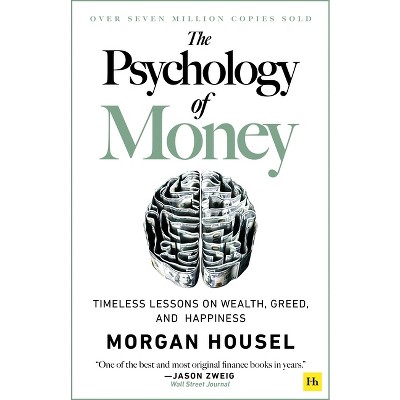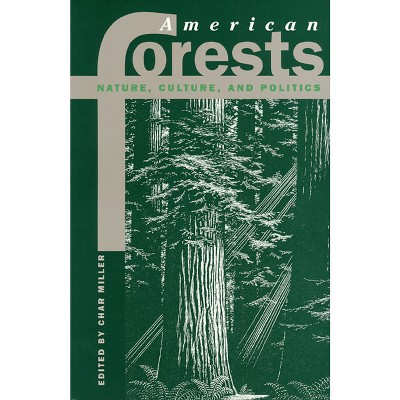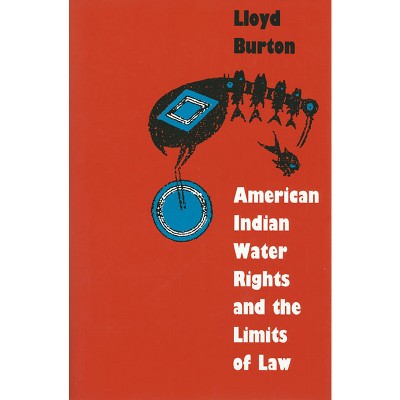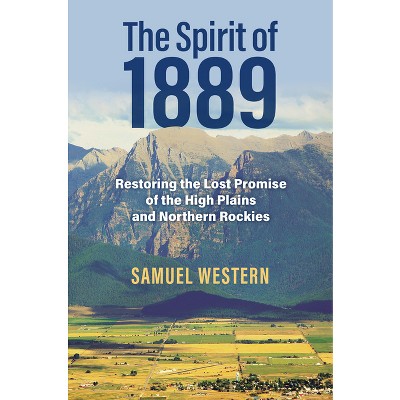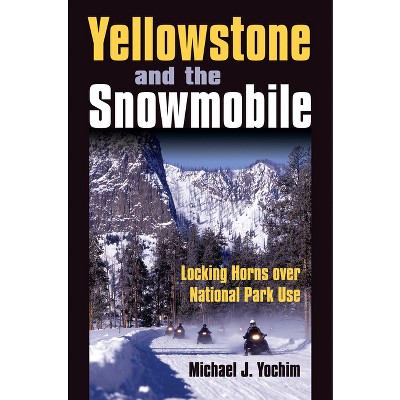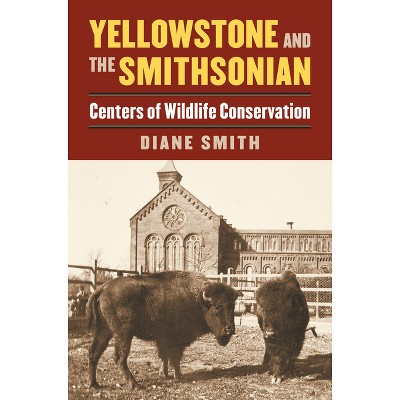Selling Yellowstone - (Development of Western Resources) by Mark Daniel Barringer (Hardcover)

About this item
Highlights
- For over a century, Yellowstone National Park has been a monument to wildness in America.
- Author(s): Mark Daniel Barringer
- 248 Pages
- History, United States
- Series Name: Development of Western Resources
Description
Book Synopsis
For over a century, Yellowstone National Park has been a monument to wildness in America. But long before flames swept through Yellowstone in 1988, that wildness had come under fire from encroachments that were making the park one of our nation's most commodified pieces of real estate. For as long as they've existed, parks like Yellowstone have been the scene of some of the most intensive commercial activity in the American West. Selling Yellowstone recounts the story of such activities in our oldest park from the 1870s through the 1960s. It is the first book to examine critically the place of business in the development of America's national parks, demonstrating the prominent role played by profit-driven entrepreneurs in shaping the physical landscape of what is generally perceived as unaltered wilderness. Challenging popular perceptions that our national parks are protected from commercialism, Mark Barringer reveals how businessmen, with the support of the National Park Service, marketed Yellowstone as a museum of mythology: a landscape created to look like what Americans wanted to believe the Old West once was. Together, the NPS and the concessionaires--particularly Harry W. Child's Yellowstone Park Company--altered the park repeatedly to fit a desired image and then creatively promoted it for mass consumption. As a result, the concessionaires virtually owned Yellowstone, selling it piecemeal to receptive customers as if it were an inexhaustible commodity. First marketed as a nature museum to be viewed from the comfort of stagecoach seats or hotel room windows, the park was transformed from a wilderness preserve to a series of roadside attractions. Roads were built to geysers and waterfalls; wolves were eliminated and bison were bred; visitors were given a choice between comfortable hotels and more rustic lodges and camps. The Yellowstone Park Company sought to meet all of the public's expectations, reaping the profits from satisfying American idealizations. Contemporary environmental attitudes eventually forced significant policy changes in the parks, but shifting political winds continue to determine such matters as snowmobile access to Yellowstone. Barringer's book contributes to the ongoing debate over the character and limits of the social construction of nature as it raises important questions about what our national parks represent, why so many people continue to feel so strongly about them, and what must be done to protect them.Review Quotes
"Barringer succeeds in telling a story that entwines political promises and the proverbial bottom line, one to which the public is not ordinarily privy. And in exposing this story, Barringer contributes a great deal to the continuing Yellowstone debate."--Annals of Wyoming
"A welcome and useful history of the Yellowstone Park Company."--Journal of the West
"A fascinating narrative of commerce, culture, and nature. . . . While we think of the parks as protected from commercial exploitation, Barringer argues 'the NPS and its concessioner partners virtually owned Yellowstone, selling it piecemeal to receptive customers as if it were an inexhaustible, self-replenishing commodity.' . . . The ramifications of tourist development in Yellowstone remain problematic, winter snowmobile use among them. Barringer has created a thoughtful, significant and welcome addition to the literature on Yellowstone."--Environmental History
"Reminds us that Yellowstone was not only sacred ground for American tourists but also a place of business."--Journal of American History
"In seven tightly-argued chapters and brief introductory and concluding sections, Barringer traces Yellowstone's story from its beginnings in 1872, through the persisting management problems faced by federal administrators to the present day. . . . He tells this story well."--Western Historical Quarterly
"In this well written book, Barringer provides an interesting and detailed history of commercial enterprises in Yellowstone National Park. The book has great value to scholars concerned with the management of public lands, the roles that interest groups (park employees, concessioners, tourists, and environmentalists) have played in the history of Yellowstone, and the difficulties in designing contracts for the private provision of goods and services on public lands."--Journal of Economic History
"Taking about a century of western history as its scope, Selling Yellowstone is particularly valuable for the insights it provides into the complexities of public-private operations in the development of Yellowstone National Park and how those operations altered over time in response to changing attitudes Americans held toward nature and wilderness."--Mansel Blackford, author of Fragile Paradise
"This important book shows that--in the world of national parks--geysers, bears, canyons, and waterfalls have more in common with railroads, hotels, automobiles, and capitalism than one might at first imagine."--Richard West Sellars, author of Preserving Nature in the National Parks: A History
"A valuable contribution to the flourishing literature on national parks and tourism."--Peter J. Blodgett, Curator, Western Historical Manuscripts, Huntington Library





